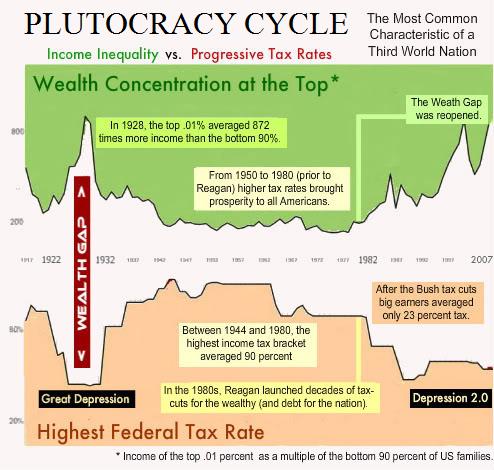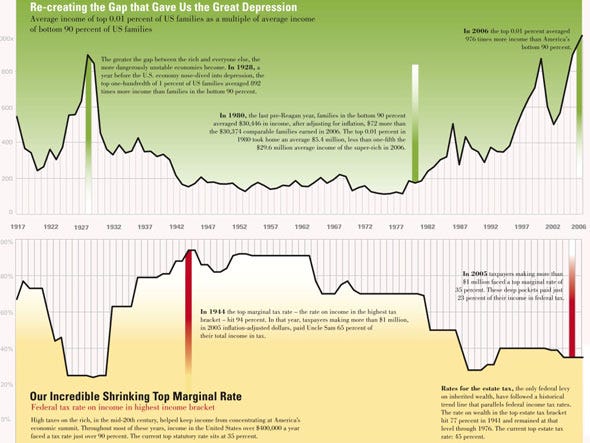Wiseacre
Retired USAF Chief
I assume we're still talking about corp profits now, rather than personal income. On the business side, we've got public and private right? On the public side, a corp owes it's stockholders the best possible return on their investment. To do otherwise is dishonest IMHO. As long as they are within the law, there's no such thing as too much profit. Now if they want to pay their CEOs and top execs multi-millions, then they have to answer to the stockholders. But the rest of us should be out of it.
On the private side, it's a little different cuz the responsibility to stockholders isn't there. How much profit is too much for these guys? Question: who gets to decide that? Suppose a guy works for 30 years building up his company, is he/she not entitled to reap the rewards when success arrives? These guys put up the money, put in the time and effort, and took the associated risks. I'm not sure someone else should be authorized to say what the limit should be for anybody.
It's not like the rich guys are taking money away from the rest of us you know. It's not zero sum, I'd like to know who first lied about that. You take a rich guy with a couple hundred grand and he/she builds a business and in the process creates wealth. Say he bulds it up to a 5 million dollar business with say $500,000 of profit. So he made a pile of money, didn't he earn it? Didn't he risk ios own cash, create some jobs, pay taxes, spend more of his money than he would have?
This guy does something that a guy who only makes $50,000/yr can't do, unless he gets rich guys to invest their money in his business. Who has the right to decide how much profit is too much, I think it comes from class warfare arguments by the democrats who want to take more money from them in taxes so they (the dems) can spend it to get themselves re-elected.
On the private side, it's a little different cuz the responsibility to stockholders isn't there. How much profit is too much for these guys? Question: who gets to decide that? Suppose a guy works for 30 years building up his company, is he/she not entitled to reap the rewards when success arrives? These guys put up the money, put in the time and effort, and took the associated risks. I'm not sure someone else should be authorized to say what the limit should be for anybody.
It's not like the rich guys are taking money away from the rest of us you know. It's not zero sum, I'd like to know who first lied about that. You take a rich guy with a couple hundred grand and he/she builds a business and in the process creates wealth. Say he bulds it up to a 5 million dollar business with say $500,000 of profit. So he made a pile of money, didn't he earn it? Didn't he risk ios own cash, create some jobs, pay taxes, spend more of his money than he would have?
This guy does something that a guy who only makes $50,000/yr can't do, unless he gets rich guys to invest their money in his business. Who has the right to decide how much profit is too much, I think it comes from class warfare arguments by the democrats who want to take more money from them in taxes so they (the dems) can spend it to get themselves re-elected.
Last edited:



